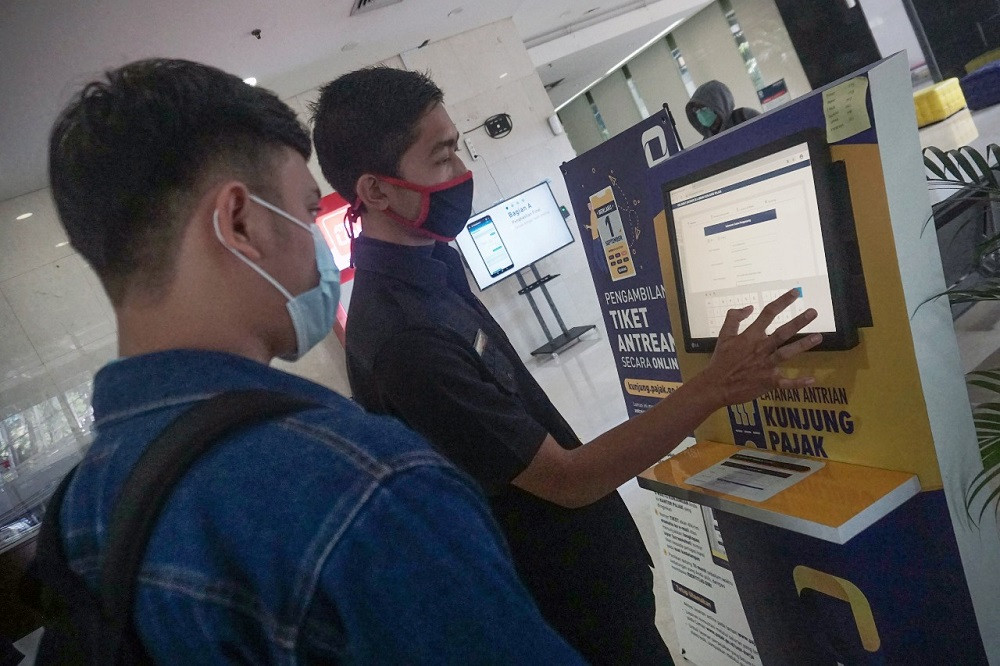Popular Reads
Top Results
Can't find what you're looking for?
View all search resultsPopular Reads
Top Results
Can't find what you're looking for?
View all search resultsTaxing the richest – why not?
Even at 35 percent, the country’s highest personal income tax (PIT) rate would still be among the lowest in the world.
Change text size
Gift Premium Articles
to Anyone

Families earning over Rp 5 billion (US$357,000) in net annual income may soon be subject to a 35 percent personal income tax (PIT), if an article in a taxation bill under deliberation in the House of Representatives comes into law.
The revised PIT rate is one of six major tax reforms in the bill designed to increase state revenue, as the government is legally obliged to cut the budget deficit from an estimated 6 percent of gross domestic product (GDP) last year to at most 3 percent by 2023. This, according to Bahana Securities analysts, will require the government to cut the fiscal deficit from last year’s Rp 956 trillion to Rp 543 trillion in 2023 and to increase tax receipts by Rp 353 trillion annually within the three-year timeframe.
Even at 35 percent, Indonesia’s highest PIT rate would still be among the lowest in the world, compared to 45 to 55 percent in Europe, 56 percent in Japan and 42.75 percent in India. No wonder 90 percent of PIT receipts in Indonesia are derived from wages or workers and only 10 percent are provided by non-employees, comprising high net-worth individuals such as businesspeople and high-skilled professionals.
At present, the highest of our four-tier PIT rates is 30 percent, imposed on net annual income of over Rp 500 million. Seen from our per capita income of only US$4,000, the 35 percent tax rate will apply only to the wealthiest 1 percent of the country’s families, which according to Credit Suisse’s Global Wealth Report 2019, account for 45 percent of the nation’s household wealth. The country does not have wealth or inheritance taxes.
Most studies have concluded – and the government has acknowledged – that tax receipts in Indonesia, which are only around 11 percent of GDP, are the lowest of the Group of 20 countries and trail behind emerging market and ASEAN peers. The tax ratio even fell to less than 9 percent last year due to the 2.2 percent economic contraction.
The biggest challenge is how to design a wealth tax with a simple, easy-to-administer mechanism, because wealth and assets have to be measured and their value has to be updated regularly. Unfortunately, our tax administration system is notorious for its inefficiency and complexity, with many exemptions and loopholes for discretionary measures by tax officials.
However, with a better design and an overall IT-based reform of the tax administration, as planned in the bill, a wealth tax could still be introduced. It is time for the government to close many of the tax minimization loopholes that allow the richest families to pass down property and financial assets to their heirs without either party paying any taxes on the appreciation in their value.
We think the risk of capital outflow in response to the higher income tax could be mitigated, as Indonesia is a signatory to the global Automatic Exchange of Information on tax matters, which makes it more difficult to hide assets within the country and overseas.










